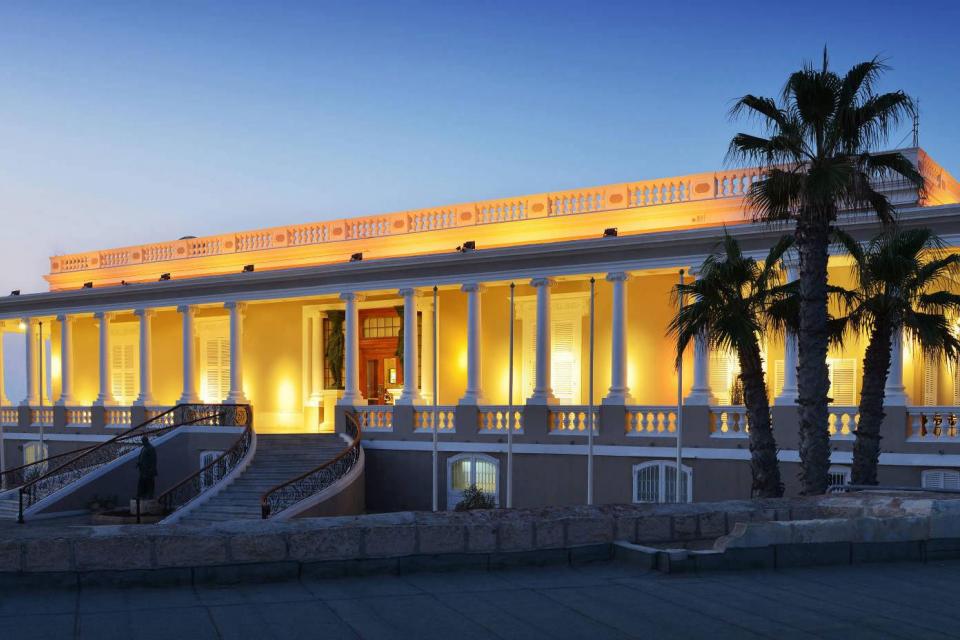- Shifting Tides in West Africa: A close look at ghana news and its ripple effects on trade and governance.
- Economic Performance and Challenges
- Political Landscape and Governance
- Electoral Processes and Citizen Participation
- Social Development and Challenges
- Regional Influence and International Relations
- Environmental Sustainability and Climate Change
. . .
Shifting Tides in West Africa: A close look at ghana news and its ripple effects on trade and governance.
The flow of information surrounding ghana news is becoming increasingly vital, not just for citizens within the country but also for international observers interested in West Africa’s evolving socio-political landscape. Recent events have highlighted the interconnectedness of Ghana’s internal affairs with broader regional and global trends, impacting trade, governance, and investment. Understanding these developments requires a nuanced perspective, moving beyond surface-level reporting to analyze the underlying causes and potential consequences of unfolding events.
This article aims to provide a comprehensive overview of the key issues shaping Ghana today, offering insight into the challenges and opportunities facing the nation. It will explore economic shifts, political currents, and social changes, shedding light on how these factors are shaping the nation’s trajectory and its role within the wider West African context.
Economic Performance and Challenges
Ghana’s economy has traditionally been reliant on commodities, particularly cocoa, gold, and increasingly, oil. However, this reliance creates vulnerability to fluctuations in global market prices. Recent years have witnessed challenges related to debt management, inflation, and currency depreciation. The nation is actively seeking to diversify its economy, promoting sectors like agriculture, tourism, and technology. Success in these efforts is crucial for sustainable long-term growth.
Investment in infrastructure remains a key priority, with ongoing projects aimed at improving transportation networks, energy production, and access to essential services. Public-private partnerships are being explored to leverage private sector expertise and funding. Furthermore, there’s a growing emphasis on fostering entrepreneurship and supporting small and medium-sized enterprises (SMEs), which are considered key drivers of job creation and economic dynamism.
Here’s a breakdown of key economic indicators:
| GDP Growth (%) | 3.4 | 3.6 |
| Inflation Rate (%) | 31.7 | 25.0 |
| Debt-to-GDP Ratio (%) | 78.4 | 80.0 |
| Unemployment Rate (%) | 13.9 | 13.5 |
Political Landscape and Governance
Ghana has long been regarded as a beacon of democracy in West Africa, with a history of peaceful transitions of power. However, recent years have seen increased political polarization and challenges related to corruption and governance. Strengthening institutions, promoting transparency, and ensuring accountability remain critical priorities. The Electoral Commission plays a pivotal role in maintaining electoral integrity.
Civil society organizations are actively engaged in advocating for good governance, human rights, and social justice. Freedom of the press is generally respected, although challenges remain in ensuring media pluralism and independence. Efforts to decentralize governance and empower local communities are underway, aiming to bring decision-making closer to the people.
Key political parties, their ideologies and some of their main goals:
- New Patriotic Party (NPP): Centre-right, focused on economic liberalization and private sector development.
- National Democratic Congress (NDC): Centre-left, advocating for social justice and increased government intervention in the economy.
- Convention People’s Party (CPP): Socialist, promoting Pan-Africanism and self-reliance.
Electoral Processes and Citizen Participation
Ghana’s electoral system is based on a first-past-the-post model, meaning the candidate with the most votes in each constituency wins. Voter registration is generally open to all eligible citizens, but challenges related to access and inclusivity persist, particularly for marginalized communities. Citizen participation in elections is typically high, reflecting a strong commitment to democratic values. However, concerns about vote-buying and electoral violence remain, necessitating ongoing efforts to strengthen the integrity of the process. There’s a continued emphasis on civic education and voter awareness campaigns.
The role of social media in shaping public opinion and influencing electoral outcomes is growing. While social media can facilitate political engagement and provide a platform for diverse voices, it also poses risks related to the spread of misinformation and hate speech. Fact-checking initiatives and media literacy programs are becoming increasingly important in combating these challenges. Furthermore, there is growing discussion about the need to regulate social media platforms to minimize their potential negative impacts on democratic processes.
The ongoing dialogue about constitutional reform is aiming at tackling some of the issues mentioned above. The country is thinking through a re-definition of the separation of powers and the role of the different branches of the state to fortify the democratic values of its citizens.
Social Development and Challenges
Ghana has made significant strides in improving social development indicators, particularly in education and healthcare. However, disparities persist between urban and rural areas, as well as between different socio-economic groups. Access to quality education remains a challenge, particularly in remote communities. Efforts are underway to improve school infrastructure, teacher training, and curriculum development.
Healthcare access is another critical priority. While significant progress has been made in reducing maternal and child mortality rates, challenges remain in providing adequate healthcare services to all citizens, particularly in rural areas. The National Health Insurance Scheme (NHIS) plays a vital role in ensuring access to affordable healthcare, but it faces financial sustainability challenges.
Here’s a comparison of education and health indicators
| Literacy Rate (%) | 76.8 |
| Primary School Enrollment (%) | 98.2 |
| Life Expectancy at Birth (Years) | 64.2 |
| Infant Mortality Rate (per 1,000 live births) | 27.9 |
Regional Influence and International Relations
Ghana plays an important role in regional affairs, particularly within the Economic Community of West African States (ECOWAS). It has been a strong advocate for regional integration, peace, and security. The country is actively involved in mediation efforts to resolve conflicts in the region. Due to its stable democratic record, Ghana is often seen as a model for other West African nations.
Ghana maintains close diplomatic and economic ties with major international partners, including the United States, the United Kingdom, the European Union, and China. These partnerships provide crucial support for Ghana’s development efforts. The nation utilizes international platforms to advocate for its interests and promote regional stability, working to ensure reliable trade routes and international co-operations.
Important aspects of Ghana’s foreign Policy:
- Promoting regional integration through ECOWAS.
- Strengthening bilateral relations with key partners.
- Advocating for peaceful conflict resolution.
- Championing sustainable development goals.
Environmental Sustainability and Climate Change
Ghana is facing increasing environmental challenges, including deforestation, desertification, and the effects of climate change. Illegal logging and mining activities are contributing to deforestation, while climate change is exacerbating droughts and floods. Addressing these challenges requires a comprehensive approach that integrates environmental sustainability into all aspects of development planning.
The government is implementing policies to promote sustainable forestry, protect biodiversity, and mitigate climate change. These include reforestation programs, the promotion of renewable energy sources, and efforts to adapt to the impacts of climate change. International cooperation is essential to secure funding and technical expertise for these efforts. There is an increasing effort to promote eco-tourism as a long term solution which increases funding for environment protection in Ghana.
Sustainable practices and eco-friendly policies are gaining momentum, marking a positive shift towards environmental consciousness. Ghana’s commitment to preserving its natural resources isn’t only about internal sustainability but also about presenting a positive example for the rest of the continent.
The political and economic landscape of Ghana is constantly evolving, presenting both challenges and opportunities. Continued investment in human capital, infrastructure, and good governance will be crucial for ensuring sustainable and inclusive development. The nation’s ability to diversify its economy, strengthen its institutions, and address environmental challenges will determine its future trajectory.
Ultimately, Ghana’s success will depend on the collective efforts of its government, civil society, and citizens, working together to build a brighter future for all.










